
We kindly inform you that, as long as the subject affiliation of our 300.000+ articles is in progress, you might get unsufficient or no results on your third level or second level search. In this case, please broaden your search criteria.

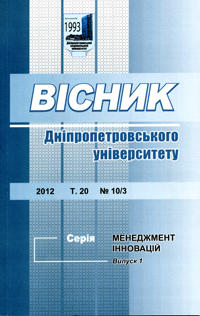
In the article the modern features of global asymmetries and disparities of socio-economic development are analyzed. The most important gaps between the rich and poor countries are defined
More...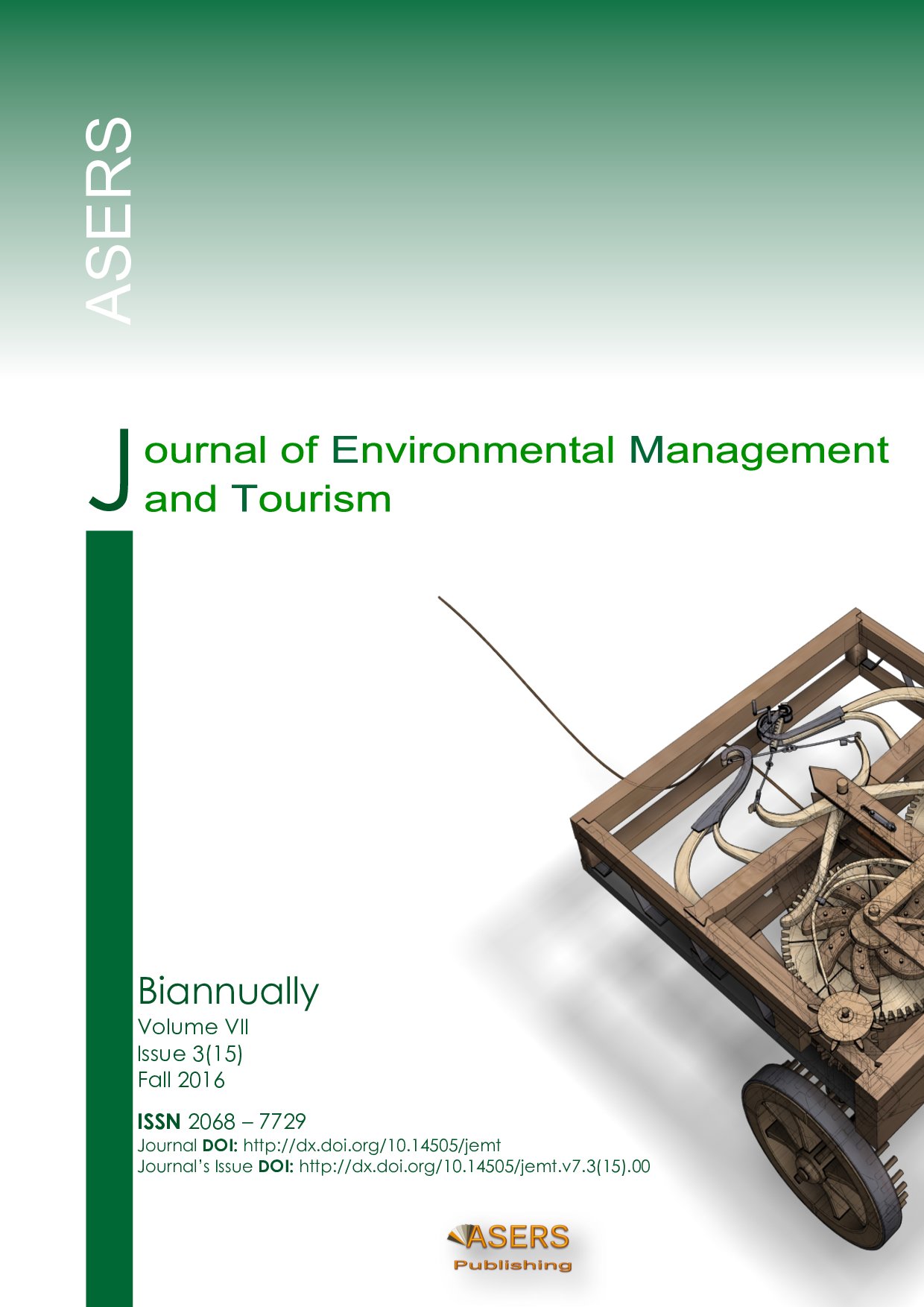
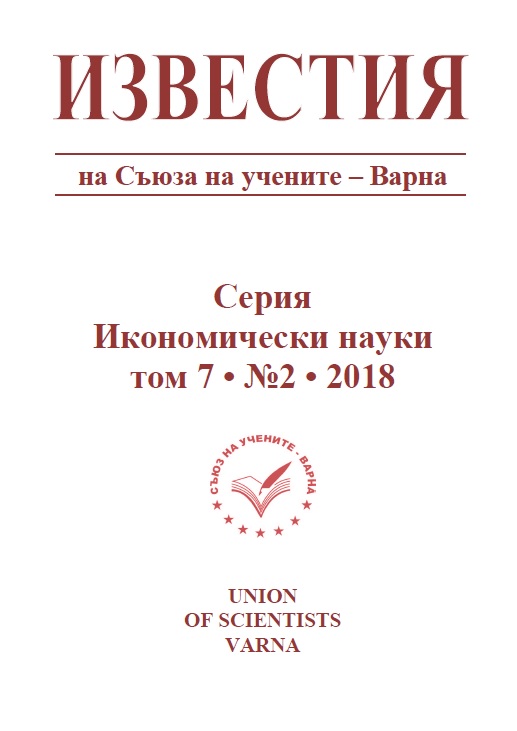
At the core of economic globalization is the increased movement of capital and labor, of finance, goods and services between countries. In this study, we examine the nature of contemporary globalization, with respect to multinational companies (MNCs). We look at the role of MNCs as key players in globalization, because their actions are related to particular features of national economies. This involves paying attention to the globalization, seeing MNCs as ‘actors’ in the way they operate. The article ends with a conceptual framework for analyzing globalization in respect of MNCs, which can act as a guide to measure the contemporary globalization, based on the key indicators.
More...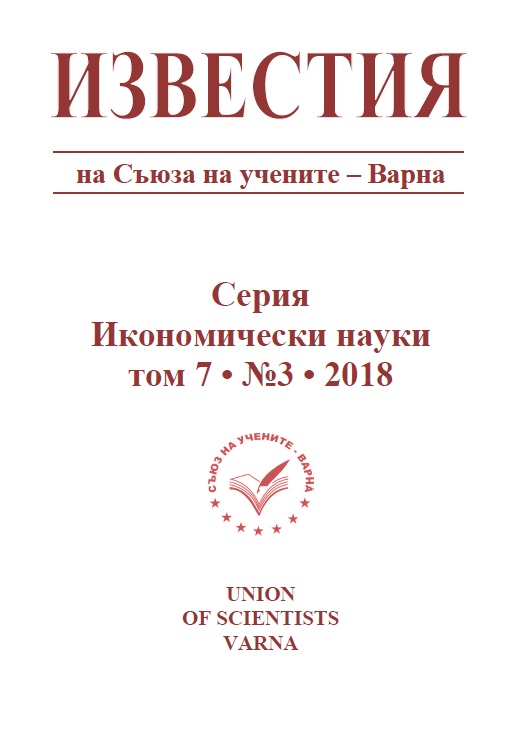
This article makes analysis of the structure and dynamics of the unsuccessful concession projects in the Water Supply and Sanitation Sector, by regions on a global basis, and covering the period from 1991 to 2016. The purpose is to give an unbiased answer as to the level of performance and respectively – reliability of the concession projects as an alternative, investment and public and private model for public infrastructure development and for improvement of the quality of the public services rendered in the Water Supply and Sanitation Sector. Among the main conclusions that can be drawn from the performed study is that the unsuccessful concession projects in the Water Supply and Sanitation Sector on a global basis tend to permanently decrease in number, and no such projects have been registered over the last 8 years of the research period.
More...
This article makes assessment of the cancelled and distressed concession projects in the Water Supply and Sanitation Sector by studying their structure by certain regions in the world within the period from 1991 to 2016. It also studies their scope and level of differentiation as a mirror of the specifics and of the public sector initiative for the failure among the concession projects in the Water Supply and Sanitation Sector. The results show that the number of cancelled project as compared to the number of those distressed is allocated approximately at the ratio of 3,7 to 1. Based on the foregoing the author draws the conclusion that the unsuccessful concession projects in the Water Supply and Sanitation Sector within the covered period is resultant from the initiative shown by the private sector that is at least more than 3,7 times greater. This result is contrary to the generally held opinion that the public sector is the one initiating the cancellation of a given concession contract due to the unfairness shown by the entity holding the concession.
More...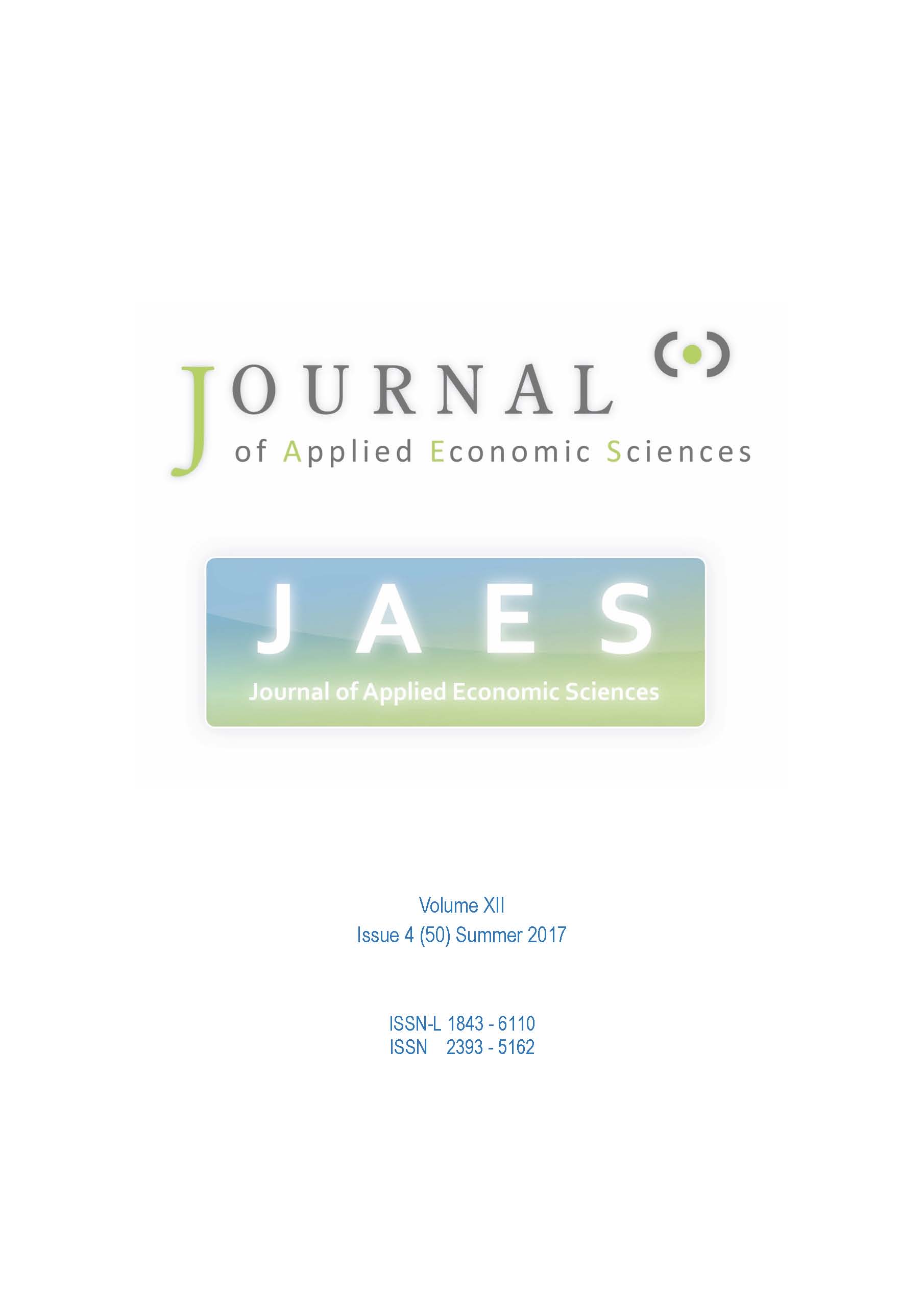
We examine the impact of the 2008-2009 Global Crisis on governance. We examine High-Income OECD, High-Income Non OECD, Upper-middle Income, Lower-Middle Income, and Low Income Countries separately. As measures of governance, we use the World Bank’s Worldwide Governance Indicators which includes six dimensions of governance which include “Voice and Accountability”, “Political Stability and Absence of Violence”, “Government Effectiveness”, “Regulatory Quality”, “Rule of Law”, and “Control of Corruption”. We find that, from pre-crisis period to post-crisis period, the ranking of each income group does not change. Our results show that, both pre- and post-crisis, the High-Income OECD Countries have the best governance measures, the High-Income Non-OECD Countries have the second best measures, and so on, in the order shown above. Interestingly, the High-Income Non-OECD Countries performed better than the other groups after the crisis. After 2008, this group actually improved in four out of six categories. We conclude that although crises affect all income groups, the High-Income Non-OECD Countries have been more successful in alleviating the effects of crises on public governance. Most of these countries are more authoritarian and more resource-rich countries and we believe that these characteristics may explain their success in fending off the negative impacts of financial/economic crises.
More...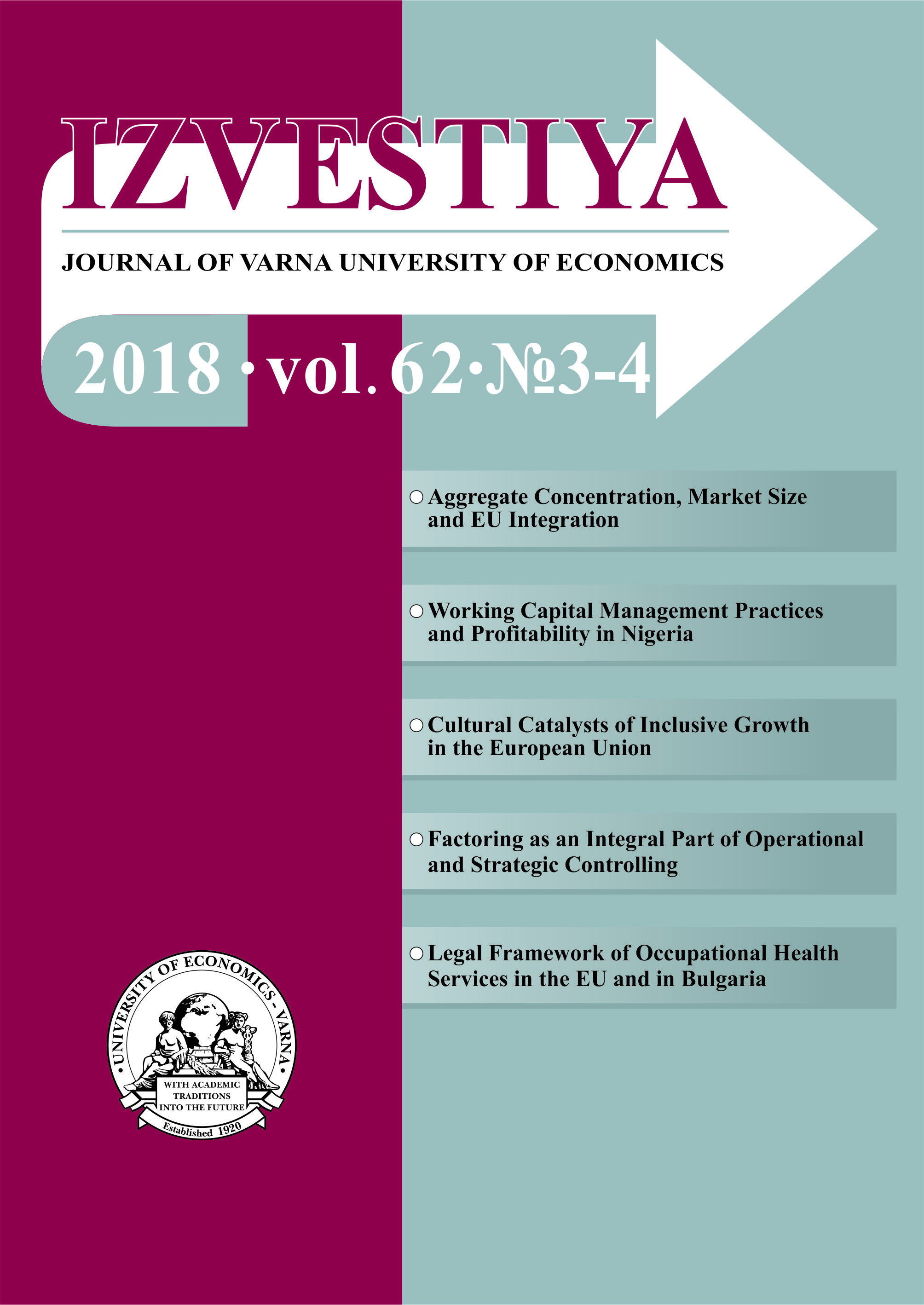
This paper has two purposes: first, to map aggregate concentration, that is to estimate economic concentration among the largest companies, in the economies of Southeast Europe, and second, to assess how is the level of aggregate concentration related to market size, international trade and integration to the European Union. Based on company data from ten countries two types of concentration indices are computed – concentration ratio and Gini coefficient. The results suggest that aggregate concentration among the examined countries varies considerably. Although correlated, both measures of concentration seem to measure different aspects of economic concentration. Both measures decline with domestic market size, measured by country’s population. Foreign market size, measured as exports, seems to be positively associated with the concentration ratio, but not with the disparity among large companies. In addition, EU integration does not seem to have a significant effect on aggregate concentration at least for the sample at hand.
More...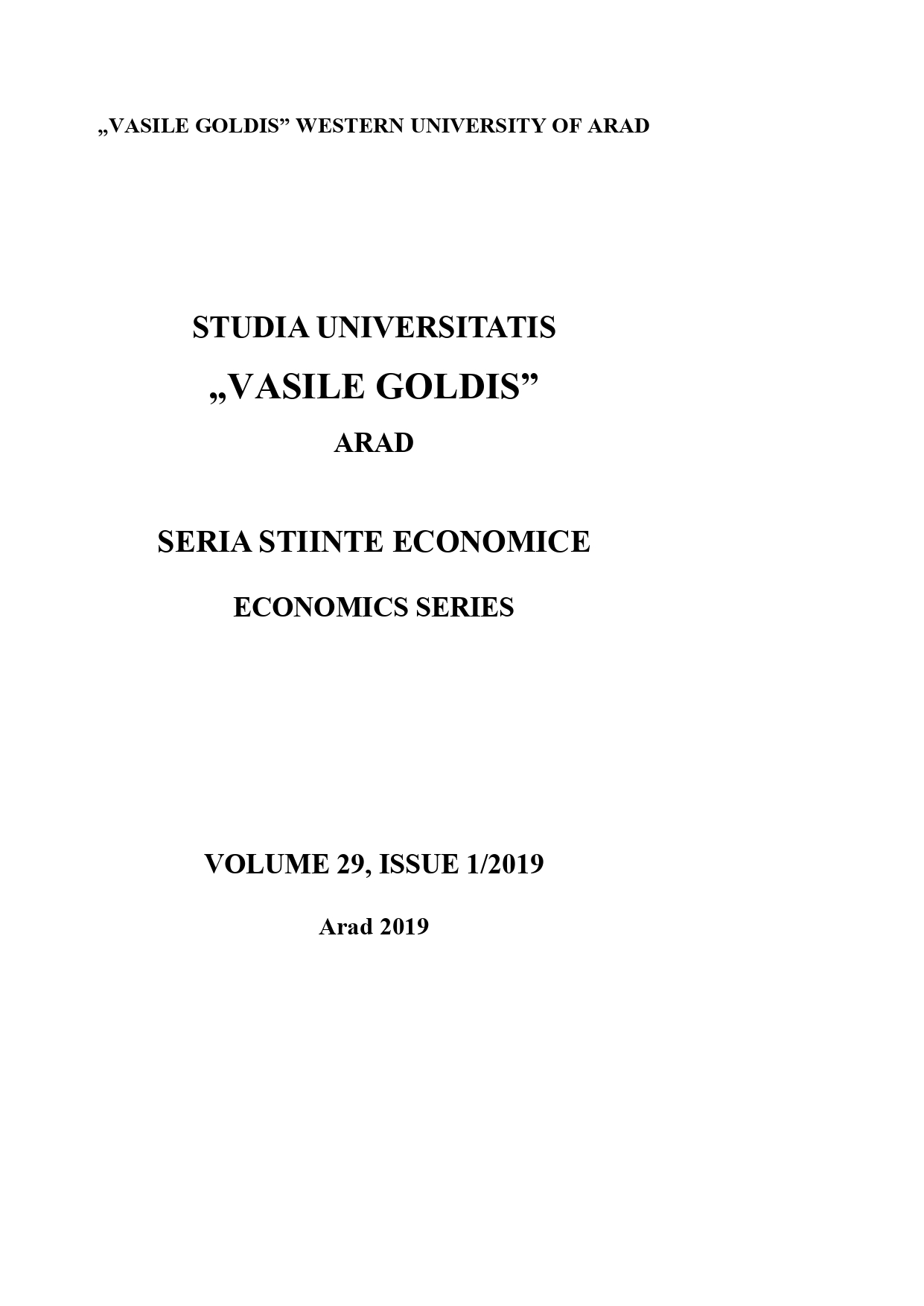
The paper aims to prove the link between human capital and gross added value in the bioeconomy sectors in the EU countries. Data from EUROSTAT data base regarding employment and gross added value in 6 bioeconomy sectors were used in a cross-country regression analysis. The econometric analysis of cross-country data shows a positive correlation between human capital in bioeconomy sectors and their gross output in 2015 in 26 European countries. It is found also that the correlation is stronger in the highly developed economies as in the central-eastern countries, as well as in the European economy.
More...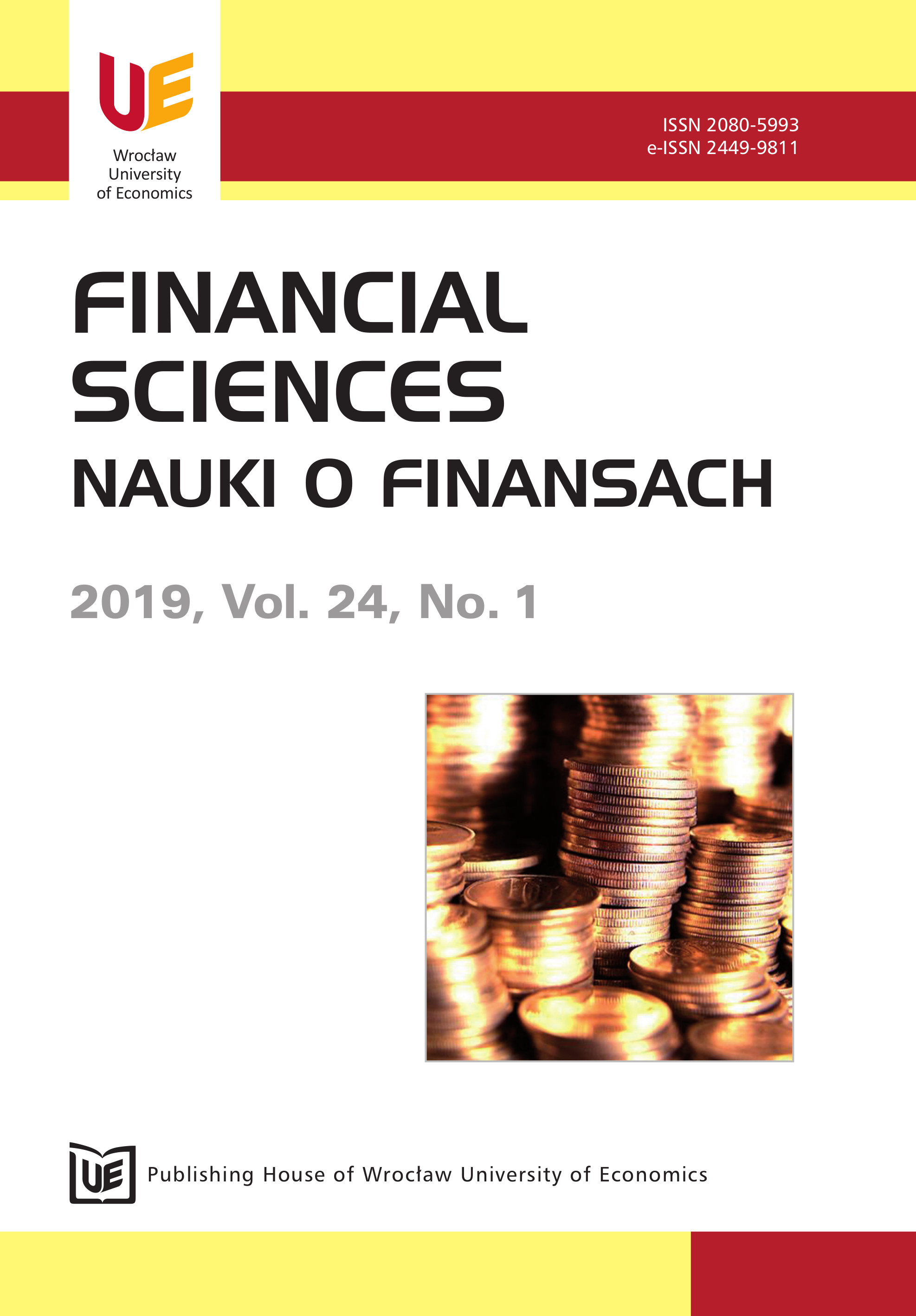
This study examines the effects of financial globalisation on the Nigerian economy using data from the Central Bank of Nigeria statistical bulletin and the Nigeria Bureau of Statistics reports from 1992 to 2017. Using both descriptive and inferential statistical analyses, the study reveals that financial globalisation has helped to mobilise foreign direct investment into the economy and the significant positive effect of personal remittances on per capita income of Nigerians. Therefore it recommends that favourable policies to attract and retain FDI and personal remittances from developed nations should be encouraged and African governments and economic actors should consider all stakeholders’ interests, and ensure that an international financial and trade system is “fair and reciprocal” to eliminate the persisting trends in abject poverty, predatory trade policies and the escalation of economic inequalities in Africa.
More...
Reimbursement has been one of the frameworks adopted in organisations to attract, hire and keep competent employees that will strategically key in to the firm’s vision, task and goals. Retaining skillful employees in officialdom is imperative for the progress and enrichment of general operation of a firm. Staff that is well motivated will strive to ensure that competitive advantage goal of the organisation is sustained and achieved over their competitors. The aim of this paper is to explore the association between compensation management and employees’ motivation in the insurance sector of Nigeria. This study employed a non-experimental design using questionnaires as a measuring instrument to gather information. There were 250 questionnaires administered, 213 collected while 212 (84.4%) thereof were found to be usable. By employing the Pearson product moment correlation coefficient, it was discovered that association exists between reward administration and workers’ motivation but a weak one. It was revealed that in Nigeria insurance industry, compensation management bears a minimal influence on the enthusiasm of workers’. It is hence recommended that remuneration package of employees’ in the insurance industry in Nigeria should be given priority by carrying out periodic review of the salary and making it at par with other industries in the financial sector of Nigeria.
More...
The main objective of this study is to ascertain the importance and necessity of Turkey, based on trade and investment, in TTIP agreement as a partner country with both European Union (EU) and the USA. Here, it uses secondary data sources — Central Bank of the Republic of Turkey (CBRT) and Turkish Statistical Institute — from 2001 to 2016. To obtain vibrant findings, the study introduces two statistical analyses: correlation and regression. In addition, it elucidates descriptive analysis for comprehending the general trade and investment scenario. The results derived from correlation suggest that there is a strong positive correlation between Turkey’s total foreign trade and its export to and import from EU and the USA, Turkey’s total FDI and EU’s FDI in Turkey, as well as Turkey’s total FDI and the USA’s FDI in Turkey. In addition, a strong positive correlation has been found between Turkey’s total resident FDI in abroad and Turkey’s FDI in EU and the USA. On the other hand, the regression results indicate that Turkey’s trade and investment with EU and the USA have a significant impact on Turkey’s total foreign trade and investment.
More...
Foreign subsidiaries, as organization units of a multinational company, are profoundly involved in the value creation process for and within the company. The performance evaluation of foreign subsidiaries is a crucial issue for globally-active companies not only in regard to value creation for the company but also in stimulating international expansion, as well as in steering resource allocation. Therefore, within each particular foreign subsidiary, the multinational company should implement a well-organized performance evaluation system which will serve as an integrative and cognitive mechanism for organizing business operations in the host country. The established performance evaluation system should assess the foreign subsidiary’s performance within the particular local environment, as well as within the multinational company as a whole. Thus, the optimization of resource allocation is most effectively achieved by the multinational company. The effective performance evaluation system includes both financial and nonfinancial measures. The aim of this paper is to provide an understanding of both key financial and nonfinancial measures that multinational companies use for performance evaluation of their foreign subsidiaries. The methodology applied consists of qualitative research techniques, such as analysis, comparative analysis, and synthesis. On the basis of the results obtained, the contribution of this paper is reflected in the determination of relevant financial and nonfinancial performance measures that multinational companies should use in order to evaluate the real performance of their foreign subsidiaries.
More...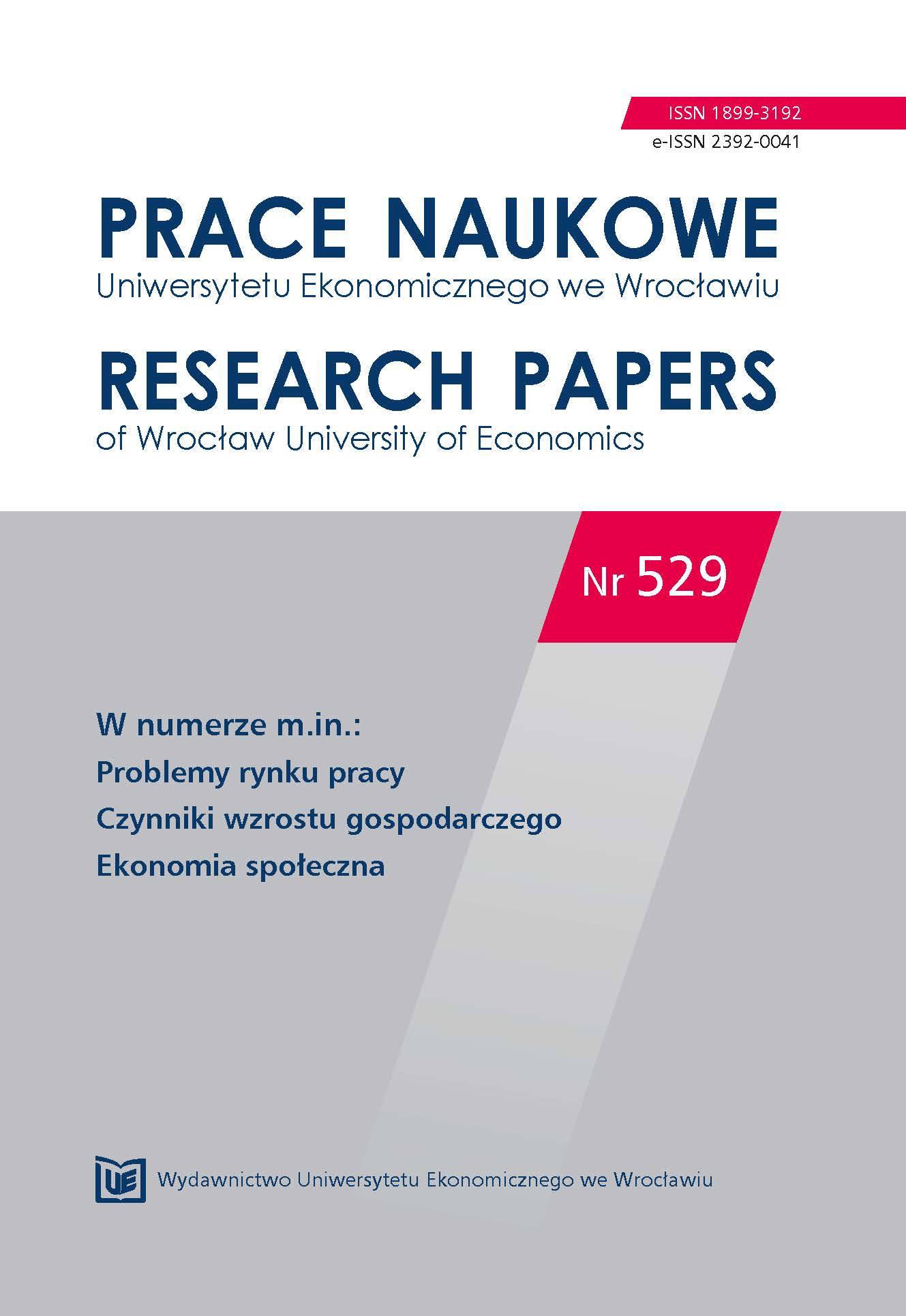
Firmy born globals od 25 lat wzbudzają zainteresowanie zarówno badaczy, jak i środowisk biznesowych. Te małe firmy konkurują z największymi korporacjami, są innowacyjne, elastyczne i przede wszystkim dobrze zarządzane. Zatem czy jest to fenomen współczesnych gospodarek, czy może bardziej efekt globalizacji? Celem artykułu jest odpowiedź na to pytanie, której autor szuka na podstawie studiów literaturowych oraz przykładów z życia gospodarczego. Born globals to bez wątpienia fenomen, firmy te bowiem na globalnym rynku wyznaczają własne reguły gry, nie poddają się utartym ścieżkom, często stoją w sprzeczności do sformułowanych teorii, a mimo to podmioty takie funkcjonują i odnoszą sukcesy. Swoją ekspansywną postawę zawdzięczają głównie uwarunkowaniom tworzącym globalny rynek, takim jak dostęp do wiedzy, nowych rozwiązań technicznych, zasobów finansowych. Jednak przede wszystkim to możliwość dotarcia do rozproszonych geograficznie na całym świecie nisz rynkowych warunkuje ich internacjonalizację. Born globals, uzyskując właściwe wsparcie, mogą odgrywać istotną rolę w gospodarce światowej.
More...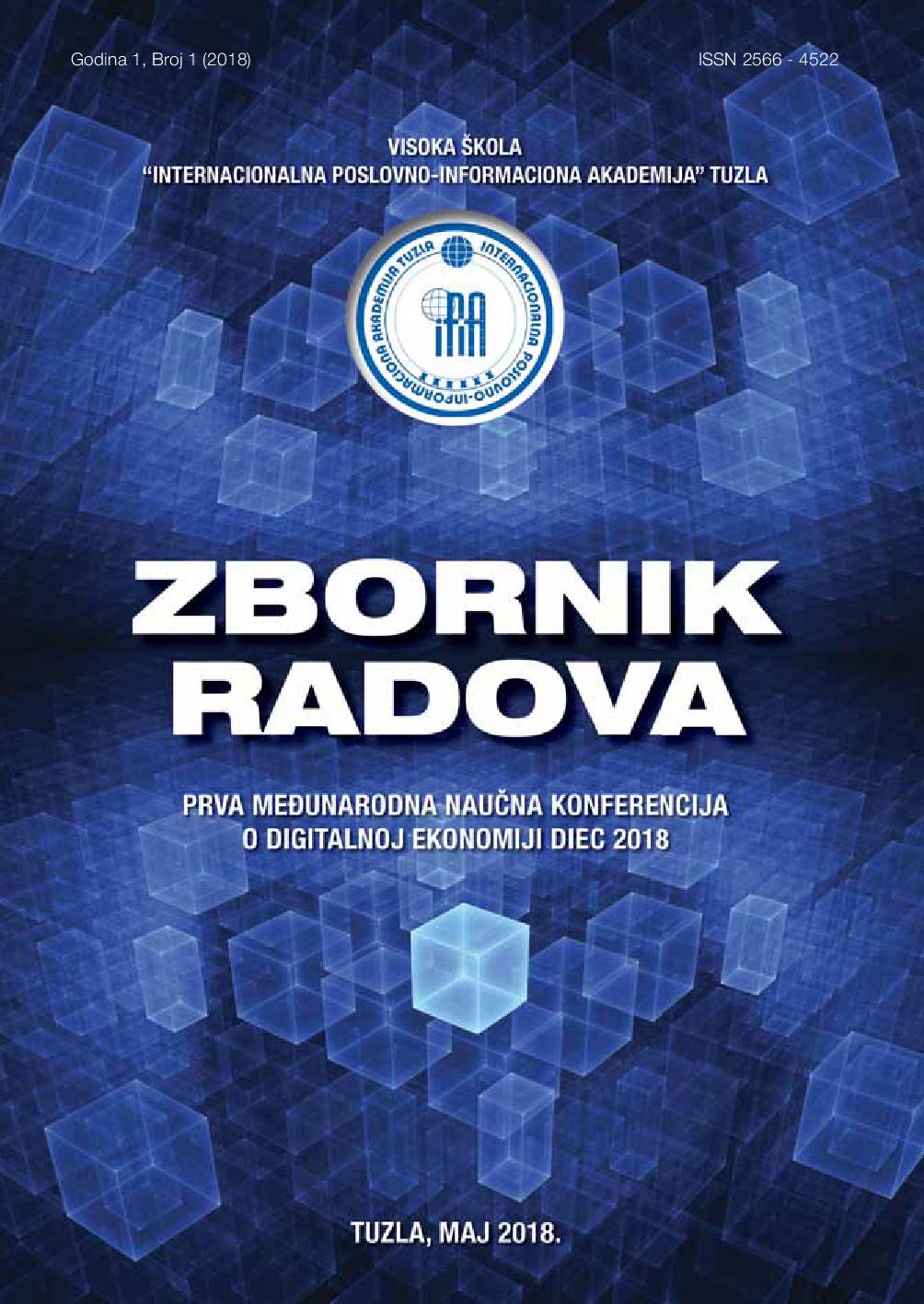
This research aims to analyze the relationship between economic well-being of exporting countries and high-technology exports using the panel data of 59 countries while controlling for the impact of the foreign direct investments. The observed period is between 1992 and 2015. Models are initially estimated using linear static panel data estimators. Moreover, previous studies indicate possible reverse causality relationship between economic terms of interest. Therefore, Granger causality test is used for this purpose. In addition, human development index (proxy variable of economic well-being of exporting countries) and high-technology exports are believed to be dynamic. This is why, linear dynamic panel data models based on GMM are employed to account for a dynamic phenomenon of the variables of interest. The obtained results of linear static panel data estimators indicate a significant positive impact of high-technology exports on human development index in both original and extended model that controls for the impact of foreign direct investments. Moreover, DH Granger non-causality test results indicate a bidirectional relationship between economic terms of interest. Results of two-step GMM estimator indicate a significant positive impact of high-technology exports on human development index in both original and extended model. In the case when possible estimation issues are not taken into consideration, regression coefficients are strongly overestimated. The results suggest that, the observed countries should foster the development of high-technology industry since this paper justifies the importance of high-technology exports as a driving force of economic well-being of exporting countries worldwide.
More...
The appearance of cryptocurrency marks the arrival of a new unlimited global system with no intermediaries and costly intercontinental transactions. Digital money would make it possible for us to have significantly quicker and cheaper transactions, which, along with present technology, is considered inevitable in the future. This paper includes three topics and deals with the bitcoin phenomenon and its influence on economic growth. The paper presents the bitcoin technology, its advantages and some risks to which the system’s users are exposed. Bitcoin represents an exceptional technical achievement, and specific features of bitcoin present a particular challenge for its users.
More...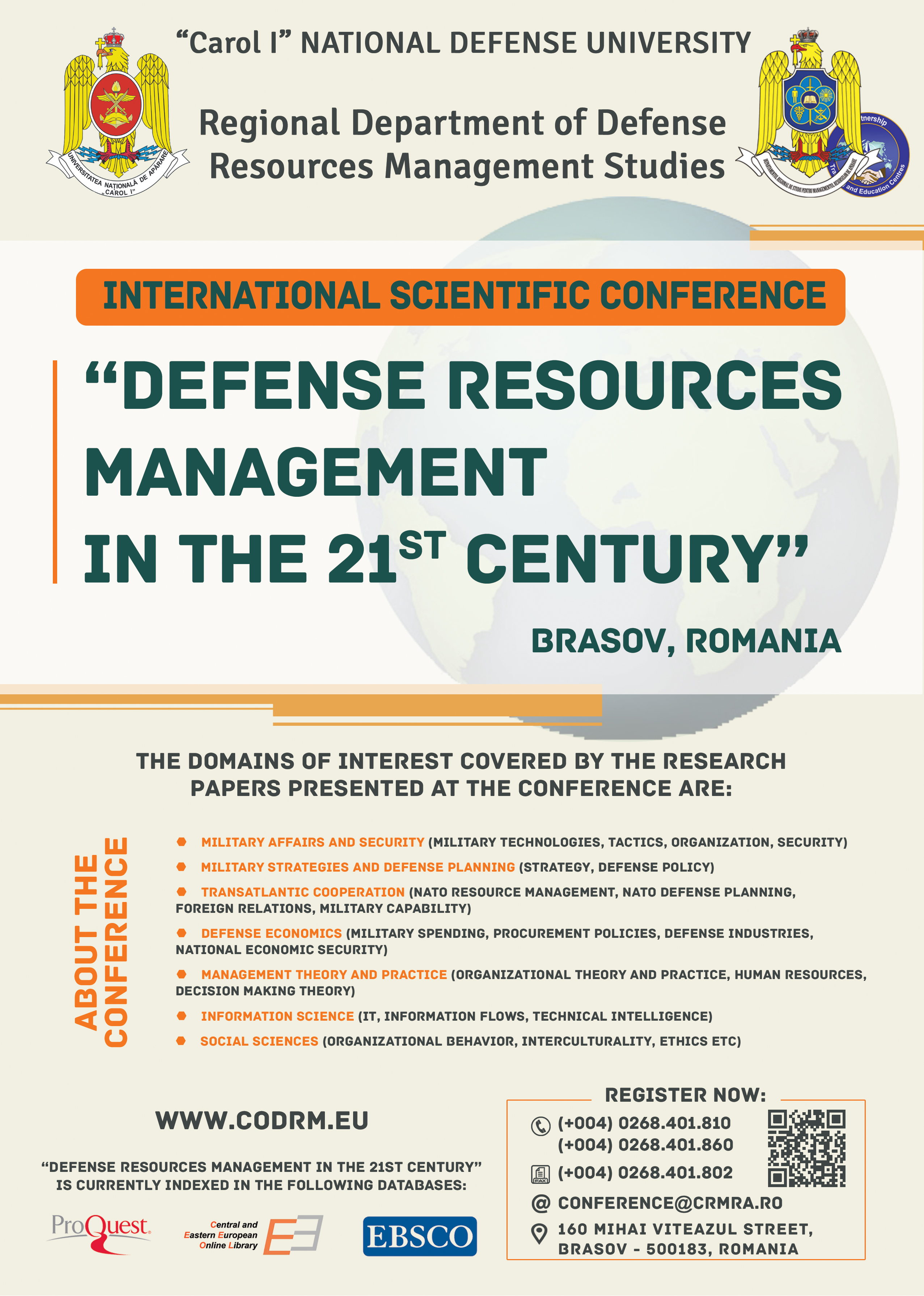
Although a nice leisure destination for summer hot days, the Black Sea is an incredible security landmark for both NATO and the EU. Situated on the eastern border of both, the waters of the Black Sea stem much trouble, when it comes to who is controlling them and who is benefiting from their resources. Being situated on the border of both NATO and the EU, this area has been the object of many strategies aiming to maximize its economic potential and enhance its role of stabilizer in the region. The Black Sea became part of the Three Seas Initiative and has its own Synergy, issued by the EU, looking forward to strengthen its position as an actor of its own within the international community. Despite a clear delineation of maritime borders, the Black Sea remains an object of dispute among the regional powers, looking forward to expand their control and influence over its waters. The aim of the present article is double-folded. On the one hand, it aims to investigate the security-related matters surrounding the Black Sea region, while on the other, it will look at the main EU and NATO security policies concerning the Black Sea. The second part of the article shall focus on a compare and contrast perspective, intended to highlight the differences in perspective of the two organizations and their separate views in approaching the Black Sea area.
More...
Macroeconomic imbalances constitute one of the most importantthreats to the cohesion of the monetary union. The aim of this articleis to examine the current state of imbalances using the new compositeindicator of macroeconomic stability. The calculated compositeindicators of macroeconomic stability allow for the formulation of thefollowing interpretations regarding changes and the current level of macroeconomic imbalances in the Euro area: 1. The aggregate pressurefrom macroeconomic imbalances in the Euro area is currently the lowestin the whole period for which data is available; 2. The imbalances in theEuro area have been partially limited, but more precisely, it should be saidthat they have changed their face rather than disappeared; 3. A signifi cantreduction of imbalances occurred in the case of variables which, in themajority of interpretations, were directly blamed for the exacerbation ofthe post-2008 crisis phenomena: current account balance, unit labour costs,or credit growth. At the same time, imbalances in terms of internationalnet investment position and public and private debt, as well as imbalancesin the labour market, have significantly increased.
More...
This text represents a sequel to our demarche concerning the globalization phenomenon understood in the analytical theoretical perspective. The economic coordinate of globalization represents a highly important element for the theoretical outlining of the concept of globalization. The world‘s markets, especially the financial ones, represent the best proof that globalization encompasses a powerful economic component. In this context, the issue of the nation-state represents a new challenge for the theorists of globalization. Welfare, the certainty of the workplace, related to the phenomenon of global unemployment, represent only a few problematic concepts which require reflection, resemantization and an authentic intellectual debate. The sovereignty of the nation-state is seriously shaken especially from an economic perspective. All the other conceptual components of globalization are directly influenced in that ―multicausal logic‖ brought forth by Giddens, by this economic coordinate. The economic, as a semantic horizon which melts into the concept of globalization, may be related to another semantic horizon just as important, namely the cultural one. At a first superficial review, the two coordinates seem rather stuck in their strict specific identity, but, after a more profound analysis, the connections between them may be brought forth. Because we have mentioned the financial markets, which, at their turn, are instrumented by money, well, this economic instrument holds, in the first instance, a strong cultural charge. The most important forms of human behavior, namely the cultural ones, are directly influenced by the way the individual understands and interprets the concept called money. At the same time, we will not be able to overlook the fact that the most important states, from an economic point of view, the states initially making up G8, and then GX, are the states which ―set the style‖ for the various cultural trends and courses at a global level. These two coordinates analyzed in this text are interconnected, making up a first semantic horizon of economic coordinate of globalization; cultural coordinate of globalization; Giddens; welfare system; nation-state;globalization.
More...